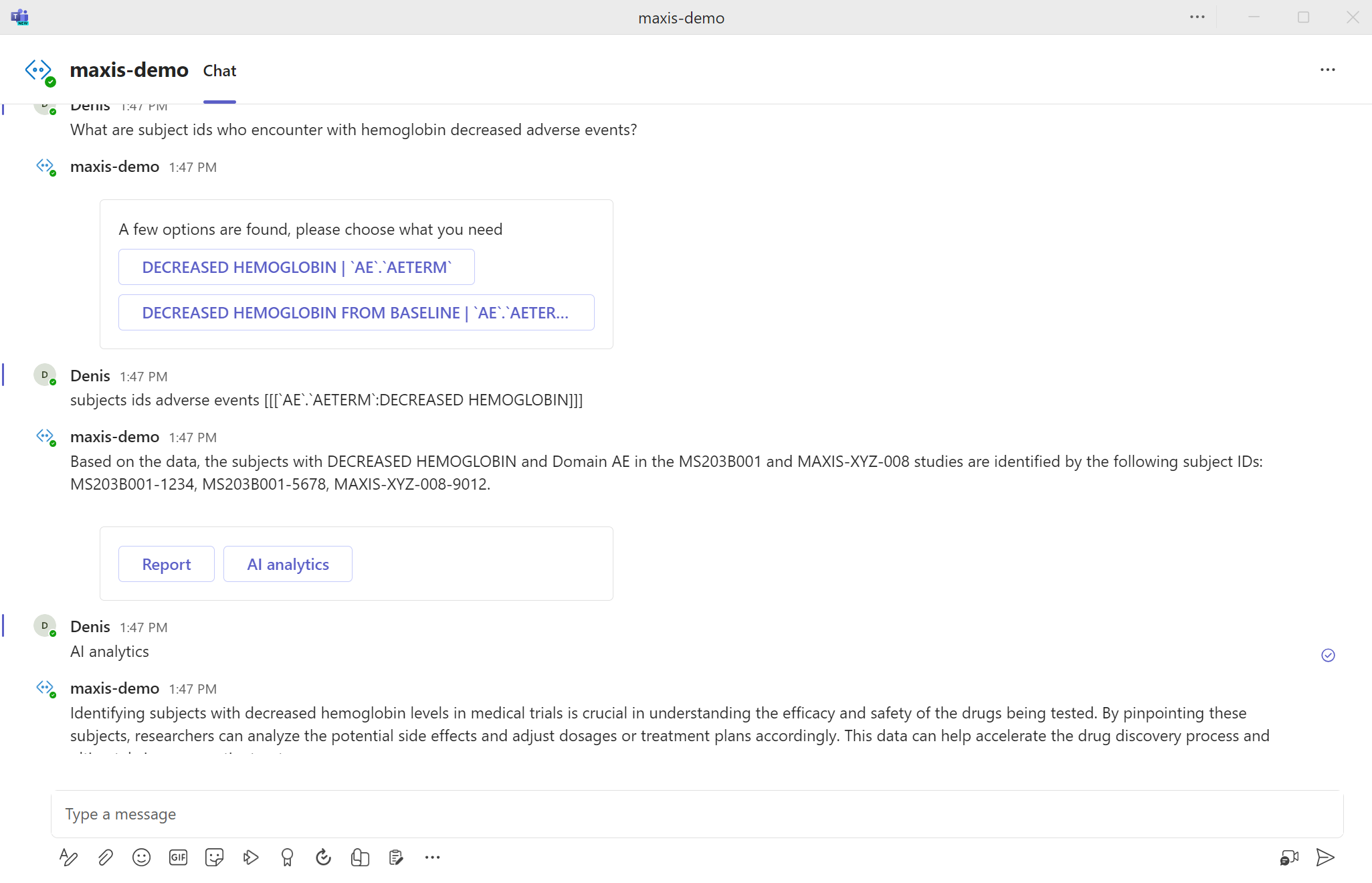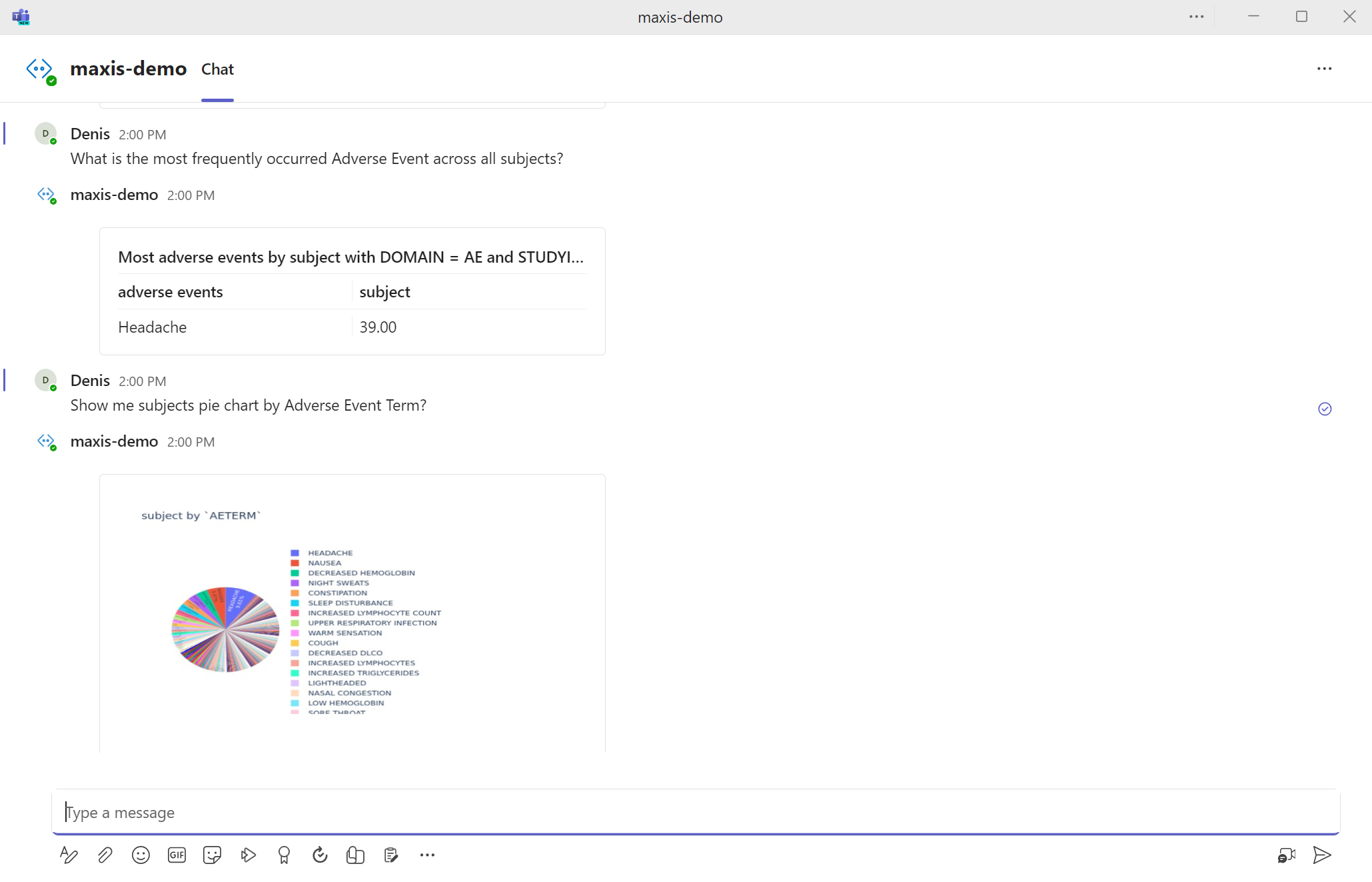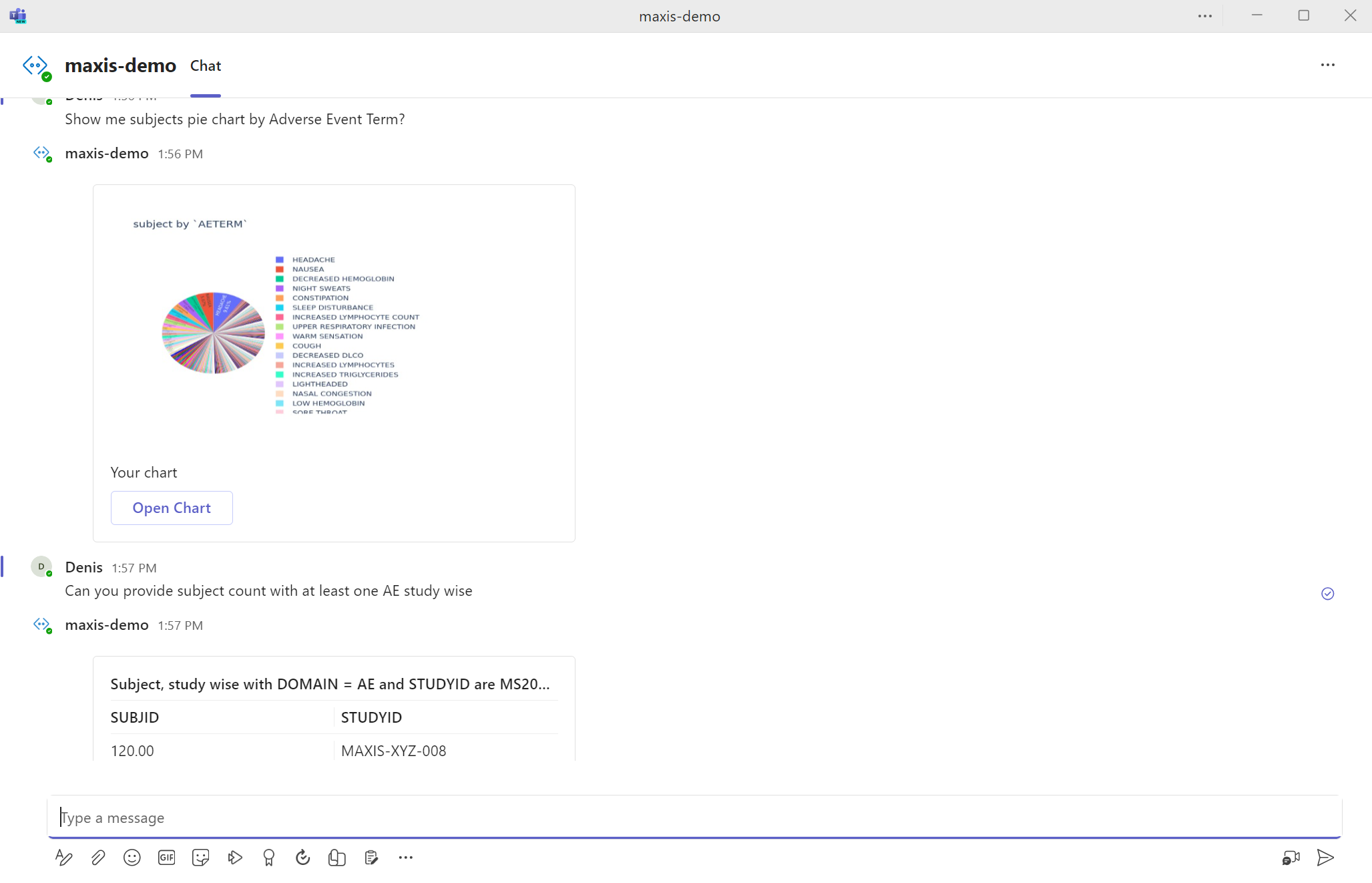Innovate your data analytics in clinical trials with NLSQL
NLSQL is a powerful Natural Language Processing for data analytics tool designed to revolutionise the way Clinical Research Organisations (CROs) analyse and interpret clinical trial results. By leveraging AI-driven technology, NLSQL enables users to access and analyse complex data sets using simple, intuitive questions. This innovative approach to data analytics offers several key benefits for CROs working with Clinical Trials Results databases, including:
1. Enhanced accessibility: NLSQL allows users to easily navigate through vast amounts of clinical trial data by asking questions in natural language, such as "Show me subjects pie chart by Adverse Event Term" or "Can you provide subject count with at least one AE study-wise?" This user-friendly interface eliminates the need for specialized training in data analysis and empowers all team members to access the information they need.
2. Faster data analytics: By harnessing the power of AI, NLSQL can quickly process and analyse large volumes of data, delivering insights in a fraction of the time it would take using traditional methods. For example, users can quickly determine the outcome of subjects with decreased hemoglobin levels in specific study, allowing for more efficient decision-making and ultimately accelerating drug discovery.
3. Cost savings: The increased efficiency provided by NLSQL can lead to significant cost savings for CROs. By automating data analysis tasks, organisations can reduce the time and resources spent on manual data processing, freeing up valuable capacity for data experts to focus on more strategic initiatives.
4. Improved decision-making: NLSQL's ability to quickly and easily analyse complex data sets allows CROs to make more informed decisions based on real-time insights. This can lead to improved trial outcomes, faster drug development, and ultimately, better patient care.
The innovation in clinical research data analytics lies in its ability to simplify data access and analysis, save time and resources, and support better decision-making, ultimately leading to accelerated drug discovery and improved patient outcomes in future.


